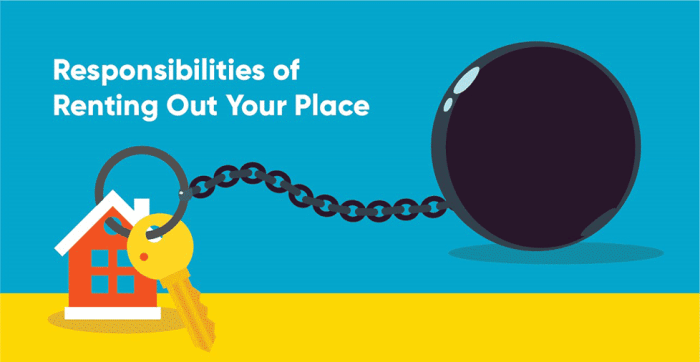How to Rent Out Your House
Legal and Financial Aspects of Renting Out Your House

Source: com.au
How to rent out your house – Renting out your property involves navigating legal and financial requirements to ensure a smooth and compliant process. Understanding these aspects is crucial for both protecting your investment and maintaining positive relationships with tenants. This section covers essential legal requirements, tax implications, rental agreement creation, and financial tracking.
Legal Requirements for Renting a Property
Legal requirements for renting a property vary significantly depending on your location. Factors such as licensing, registration, and adherence to local housing codes must be investigated thoroughly. For instance, some jurisdictions require landlords to obtain a rental license, while others may mandate specific insurance coverage. It’s crucial to consult with local authorities or a legal professional to understand the specific regulations in your area.
Failure to comply can result in penalties and legal repercussions.
Tax Implications of Rental Income
Rental income is considered taxable income in most jurisdictions. Accurate record-keeping is essential for filing your taxes correctly. Expenses related to the property, such as repairs, maintenance, and property taxes, can often be deducted from your rental income, reducing your overall tax liability. Consult a tax professional to understand the specific deductions and tax implications in your area.
Proper record-keeping will simplify the tax filing process and minimize potential issues.
Creating a Legally Sound Rental Agreement
A well-drafted rental agreement protects both the landlord and the tenant. It should clearly Artikel the terms of the tenancy, including rent amount, payment schedule, lease duration, responsibilities of both parties, and procedures for handling disputes. Including clauses related to property damage, pet policies, and late payment penalties is crucial. A standard lease agreement template can be adapted to your specific needs, but seeking legal counsel to review and customize it is highly recommended.
Essential Clauses in a Rental Agreement
Several essential clauses should be included in a rental agreement. These include details on rent amount and payment method, lease term and renewal options, tenant responsibilities for maintenance and repairs, a clear description of the premises, procedures for addressing property damage, and a clause outlining the consequences of lease violations. Specific clauses regarding pet ownership, subletting, and guest policies should also be considered and clearly defined.
Tracking Rental Income and Expenses
Maintaining accurate financial records is crucial for managing your rental property effectively and for tax purposes. A simple spreadsheet can track rental income, expenses, and profit margins. Columns should include date, description of income/expense, amount, and category (e.g., rent, repairs, insurance). Regularly reviewing this spreadsheet helps monitor profitability and identify areas for improvement or cost reduction. An example of such a spreadsheet might include columns for “Date,” “Description,” “Income/Expense,” “Category,” and “Balance.”
Finding and Screening Tenants
Securing reliable tenants is essential for a successful rental experience. Effective advertising, thorough background checks, and careful evaluation are key steps in this process. This section details strategies for attracting qualified tenants and minimizing potential risks.
Effective Methods for Advertising Your Rental Property
Multiple platforms should be utilized to maximize exposure to potential tenants. Online listings on popular real estate websites, social media advertisements, and local classified ads can all reach a wide audience. High-quality photos, accurate descriptions, and competitive pricing are crucial for attracting interest. Consider highlighting unique features or amenities to make your property stand out.
Conducting Thorough Tenant Background Checks, How to rent out your house
Thorough background checks are crucial to assessing a tenant’s reliability and suitability. This typically involves verifying employment history, credit reports, and rental history. Many services offer comprehensive background checks, providing reports that detail a potential tenant’s financial stability and past rental performance. Reviewing these reports helps make informed decisions about tenant selection.
Tenant Screening Services Comparison
Several tenant screening services are available, each offering different features and pricing. Factors to consider when choosing a service include the comprehensiveness of their reports, the speed of processing, and the cost. Comparing several services and reading reviews can help you find the best option for your needs. Consider features such as credit checks, criminal background checks, eviction history checks, and landlord references.
Evaluating Potential Tenants: A Checklist
A checklist can help streamline the tenant evaluation process. Key aspects to consider include credit score, rental history, employment stability, references, and overall impression during interviews. Documenting this information for each applicant ensures a consistent and fair evaluation process. The checklist should include space for notes and observations about each candidate.
Sample Tenant Application Form
A well-designed application form collects essential information from potential tenants. This form should include sections for personal information, contact details, employment history, rental history, references, and authorization for background checks. A clear and concise form makes the application process efficient and ensures you collect all necessary information. Include a statement clearly outlining the consent to conduct a background check.
Preparing Your Property for Rent
Presenting your property in its best light is essential for attracting high-quality tenants and achieving optimal rental rates. This section focuses on preparing your property for the rental market, including necessary repairs, staging, photography, and curb appeal.
Successfully renting out your house involves careful preparation, from pricing strategically to marketing effectively. Understanding market trends is key, and a quick look at sites listing properties like houses for rent Lexington KY can offer valuable insights into local demand and rental rates. This research helps you set competitive pricing and attract suitable tenants, ultimately maximizing your return on investment from your rental property.
Necessary Repairs and Improvements
Before listing your property, address any necessary repairs or improvements to enhance its appeal and functionality. This includes fixing any broken appliances, addressing maintenance issues, and making cosmetic upgrades as needed. Prioritizing repairs will help attract more potential renters and command higher rental rates. A pre-rental inspection checklist can help organize this process.
Staging Your Property
Staging your property involves presenting it in a way that highlights its best features and appeals to potential renters. This might involve decluttering, rearranging furniture, and adding some decorative touches to create a welcoming and inviting atmosphere. Professional staging can significantly increase the appeal of your property. Consider neutral colors and minimal personal items.
Professional-Looking Photos for Online Listings
High-quality photos are crucial for attracting potential renters online. Well-lit, professionally taken photos showcase your property’s features effectively. Consider hiring a professional photographer for optimal results. Photos should highlight key selling points, such as spacious rooms, updated kitchens, and attractive landscaping.
Curb Appeal and Landscaping
The exterior of your property is the first impression potential renters will have. Maintaining good curb appeal, including landscaping and exterior maintenance, is essential for creating a positive first impression. Well-maintained landscaping and a clean exterior increase the attractiveness of your property. Consider adding fresh paint or updating the front door.
Property Inventory
A detailed inventory of the property’s contents is crucial for protecting both the landlord and tenant. This list should include all appliances, fixtures, and furnishings, noting their condition and estimated replacement cost. This inventory helps avoid disputes at the end of the tenancy.
| Item | Condition | Replacement Cost |
|---|---|---|
| Refrigerator | Good | $800 |
| Oven | Good | $700 |
| Dishwasher | Excellent | $600 |
| Washing Machine | Fair | $500 |
Managing the Rental Property
Effective property management is crucial for maintaining a smooth rental experience and ensuring a positive landlord-tenant relationship. This section covers different management options, rent collection, communication strategies, and handling maintenance requests.
Property Management Options
Landlords can choose between self-managing their property or hiring a property management company. Self-management offers greater control but requires more time and effort. A property management company handles many aspects of property management, but it involves paying management fees. The best option depends on your time commitment and management expertise.
Collecting Rent and Handling Late Payments
Establishing a clear rent collection process is crucial. This involves setting a payment schedule, specifying payment methods, and implementing procedures for handling late payments. A formal late payment policy should be established and communicated to tenants. Consistent and timely rent collection is essential for maintaining financial stability.
Maintaining a Positive Landlord-Tenant Relationship
Open communication and responsiveness are key to maintaining a positive relationship. Promptly addressing tenant concerns and maintenance requests demonstrates professionalism and builds trust. Regular communication helps prevent misunderstandings and fosters a respectful landlord-tenant relationship. Consider regular check-ins or surveys.
Handling Tenant Complaints and Maintenance Requests
Establishing a clear process for handling tenant complaints and maintenance requests is crucial. This involves promptly acknowledging requests, investigating issues, and taking appropriate action to resolve them. A system for tracking and documenting requests ensures accountability and efficiency. Consider using a dedicated platform for communication and maintenance requests.
Sample Communication Plan

Source: amazonaws.com
A communication plan Artikels how you will interact with tenants. This might include methods of contact (email, phone, online portal), frequency of communication, procedures for handling emergencies, and protocols for addressing complaints. A well-defined communication plan ensures clear and consistent interaction. Consider providing tenants with an emergency contact list.
Insurance and Risk Management
Protecting your investment and mitigating potential risks are essential aspects of renting out your property. This section covers necessary insurance coverage, risk mitigation strategies, and procedures for handling emergencies and property damage.
Types of Insurance for Rental Properties
Landlord insurance is crucial for protecting against various risks. This type of insurance typically covers property damage, liability, and loss of rental income. Understanding the different types of coverage and choosing the appropriate policy is essential for protecting your investment. Consider additional coverage for specific risks.
Mitigating Risks Associated with Renting
Several strategies can mitigate risks. These include conducting thorough tenant screenings, maintaining the property in good condition, having a well-drafted rental agreement, and obtaining appropriate insurance coverage. Regular inspections can also help identify and address potential problems early on. Proactive maintenance reduces the risk of costly repairs.
Handling Emergency Situations
Having a plan for handling emergencies, such as plumbing leaks, electrical failures, or heating system malfunctions, is crucial. This might involve establishing a list of reliable contractors and having a system for contacting them quickly. A detailed emergency plan should be readily accessible. Consider providing tenants with emergency contact information.
Handling Property Damage Caused by Tenants
A clear process for handling property damage is essential. This involves documenting damage, assessing responsibility, and pursuing repairs or compensation as appropriate. The rental agreement should Artikel procedures for handling property damage. Consider requiring a security deposit to cover potential damages.
Flowchart for Handling Tenant Disputes
A flowchart can visually represent the steps involved in resolving tenant disputes. This might include steps for communication, mediation, and legal action if necessary. A clear and concise flowchart helps streamline the dispute resolution process. Consider including steps for documenting all communication and actions taken.
Understanding Your Local Market: How To Rent Out Your House
Understanding your local rental market is crucial for setting competitive rental rates and attracting qualified tenants. This section covers factors influencing rental rates, market research, and analyzing comparable properties.
Factors Influencing Rental Rates
Several factors influence rental rates, including location, property size and features, amenities, market demand, and overall economic conditions. Analyzing these factors helps determine a competitive and fair rental price. Consider comparable properties in your area to benchmark your rental rate.
Comparing Rental Rates for Similar Properties
Researching rental rates for comparable properties in your neighborhood is essential for setting a competitive price. This involves analyzing properties with similar features, size, and location. Online real estate portals and local listings provide valuable data for comparison. Consider factors such as property condition and amenities.
Current Market Trends for Rental Properties
Understanding current market trends, such as vacancy rates and rental demand, is crucial for setting realistic expectations. Monitoring these trends helps anticipate potential challenges and opportunities. Local real estate agents and market reports can provide insights into current market dynamics. Consider the seasonality of rental demand.
Importance of Market Research Before Setting Rental Rates

Source: cloudinary.com
Conducting thorough market research before setting rental rates is essential for maximizing rental income and attracting tenants. This research informs pricing decisions and helps avoid setting rates that are either too high or too low. A well-informed pricing strategy is crucial for success. Consider consulting with a local real estate professional.
Visual Representation of a Typical Rental Property
A typical rental property in a suburban area might be a three-bedroom, two-bathroom single-family home with a garage and a backyard. It would likely have updated appliances, central air conditioning, and a finished basement. The average rental cost for such a property might range from $2,000 to $2,500 per month, depending on specific features and location within the suburb.
FAQ Resource
What type of insurance do I need for a rental property?
Landlord insurance is crucial, covering liability for injuries on the property and damage caused by tenants (beyond normal wear and tear). Consider additional coverage for lost rental income.
How do I handle late rent payments?
Have a clear late payment policy Artikeld in your lease. Send a written notice, and if the payment remains outstanding, consult with legal counsel regarding eviction procedures.
What if a tenant damages the property?
Document the damage with photos and a detailed report. Review your lease agreement and tenant’s security deposit to determine how to proceed with repairs and compensation.
How can I find reliable tenant screening services?
Research reputable companies online, comparing their features and pricing. Look for services that conduct background checks, credit reports, and eviction history checks.















